Curated OER
Nice words word search
In this nice words worksheet, students search for nice words in this nice words word search. Students search for 24 words that mean nice things.
Curated OER
Vocabulary Practice: Words That Mean the Same
In this synonyms worksheet, students read ten sentences and analyze the words in bold. From three choices, students choose the word or phrase that means the same as the word in bold.
Curated OER
Which Word Does Not Belong
In this grouping words worksheet, students recognize the word that doesn't belong in a group. Students complete ten questions by choosing the word that doesn't belong with the other words.
Curated OER
Tales to Live By
Students explore the concept of theme. In this fairy tales lesson, students read several tales and complete hands-on activities, art projects, and dramatic play that lead to an awareness of the themes of the tales.
Curated OER
Parenting Skills
Students introduce themselves and discuss situational problems in their family. In this family structure lesson students complete an activity on parenting and discuss different topics.
Curated OER
Taking a Stand
Students make connections with cultures (their own and others'), their identity, heritage, traditions, and symbols and examine the richness that diversity brings to communities.
Curated OER
Technology in 2nd Grade
Second graders explore ways to use computers. They practice spelling words using Kid Pix software, write Bible verses and illustrate them. They read stories and illustrate and write about their favorite characters. They create pattern...
Wisc-Online
Wisc Online: Integrity in Work Teams
In this learning module, user will learn to identify the qualities of a person with integrity and the importance of integrity within a work team.
Stanford University
Stanford University: Integrity
Integrity is outlined in this detailed entry by the Standford Encyclopedia of Philosophy. Integrity is also explained as it relates to a variety of other characteristics. This site is designed for those looking to develop a high level of...
Wikimedia
Wikipedia: Integrity
In addition to providing a definition of "integrity," this article has information on the various ways in which integrity manifests in popular culture, law, and science. Contains several links to articles on related topics.
Live Wire Media
Good Character: Teaching Guides for High School
The pages in this website were created to accompany two video series, "In Search of Character" and "Not for Sale - Ethics in the Workplace, but most of the material can easily be used without the videos. Character topics include traits...
Live Wire Media
Good Character: Teaching Guides for Middle School
Although these teaching guides are designed to be used with a video series called "Big Changes, Big Choices," most of the material here can be used without the videos. The topics covered in this series include both life skills and...
Live Wire Media
Good Character: Character Education
This site is loaded with resources for developing and maintaining a character education program in your school, class or team. It includes information on service learning, ethics in the workplace and leading class discussions as well as...
ArtsNow
Arts Now Learning: Exercising Character: Trustworthiness [Pdf]
Help students understand the work ethic, and character trait of trustworthiness. Includes material for young students, lesson ideas for teachers of young children complete with hands-on exercises.
Other
Ntlf: Class Participation Assessment Rubric
This rubric is a means of restricting the subjective element in an assessment process of a Socratic dialogue, which inevitably has a subjective aspect. It suggests that students should be scored on the basis on the teacher's...



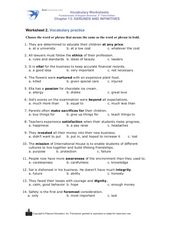
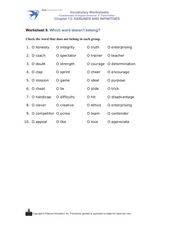


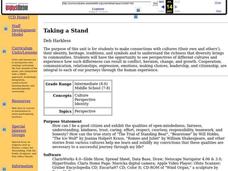


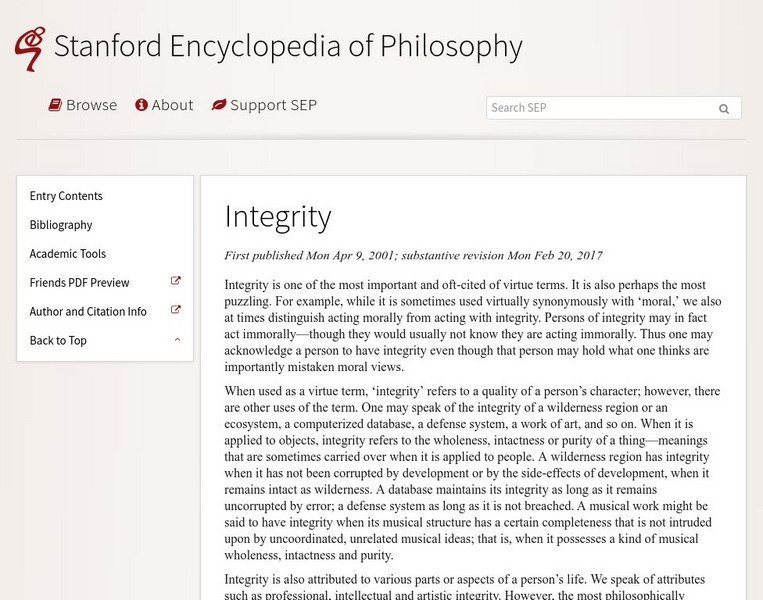
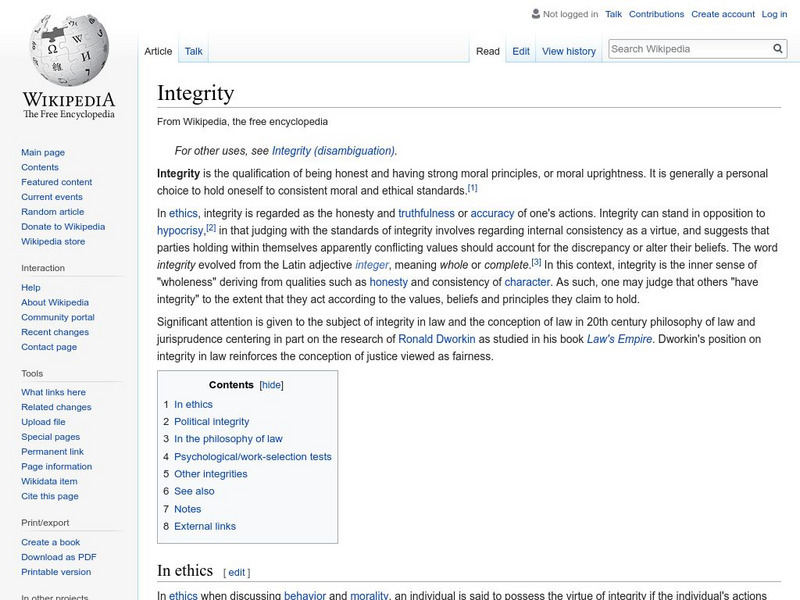
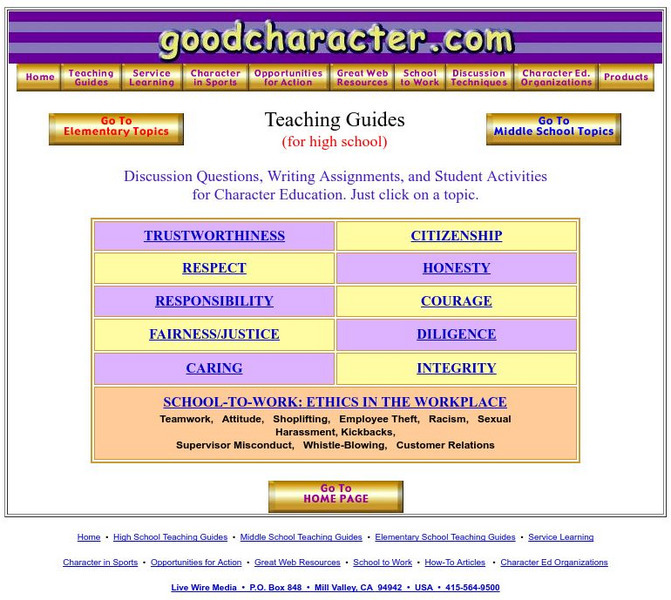


![Arts Now Learning: Exercising Character: Trustworthiness [Pdf] Activity Arts Now Learning: Exercising Character: Trustworthiness [Pdf] Activity](https://d15y2dacu3jp90.cloudfront.net/images/attachment_defaults/resource/large/FPO-knovation.png)